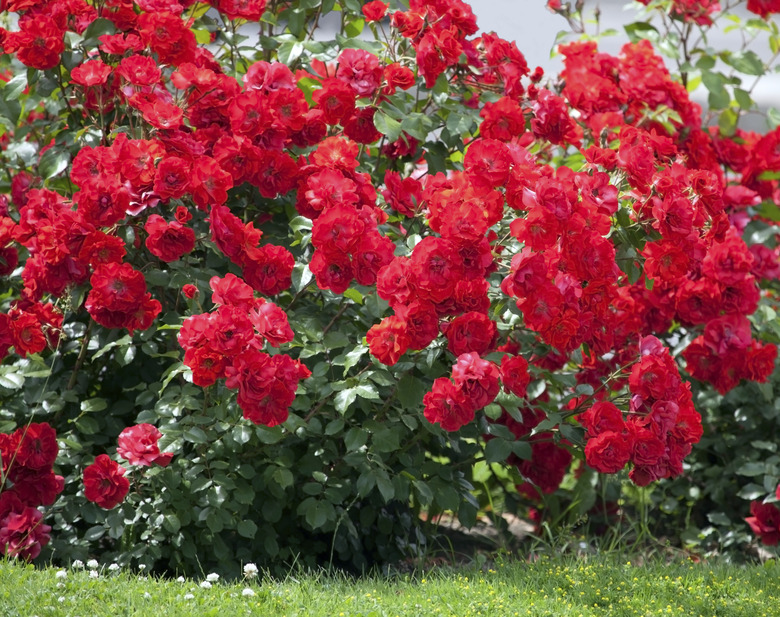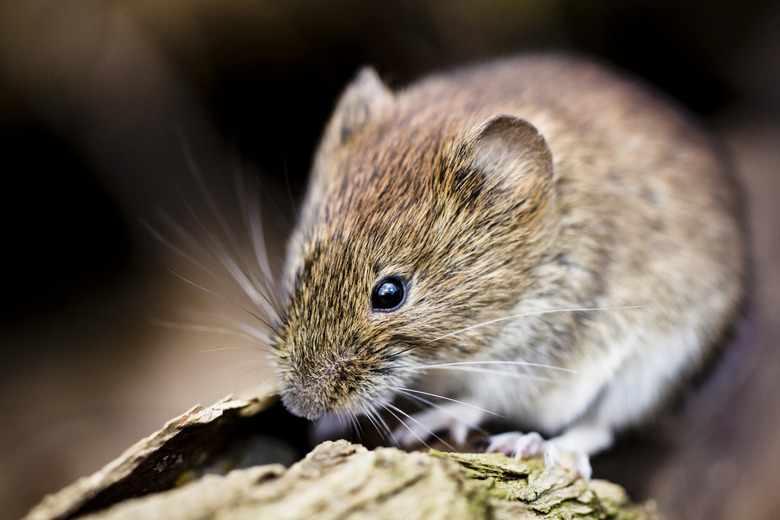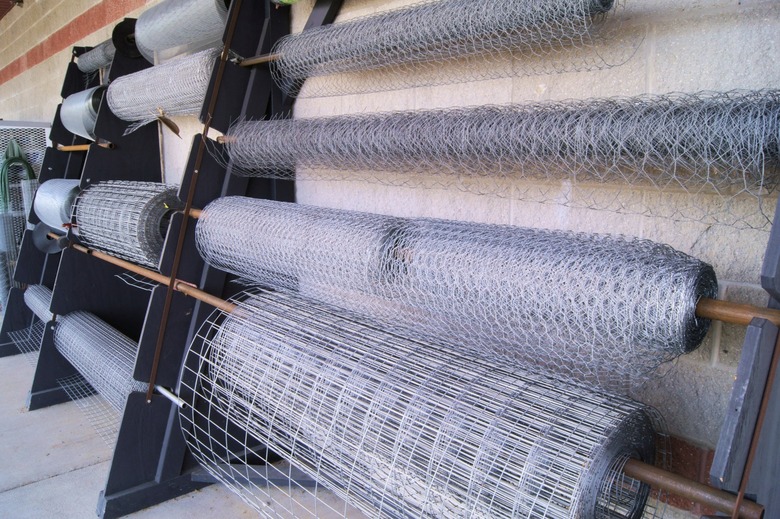Animals That Eat Rose Bush Roots
Rose bush root-eating culprits are the burrowers, gophers and voles. Not all burrowing garden pests eat rose roots. Moles are carnivores and don't eat the roots, yet their tunneling can damage the root systems of roses. Many roses, Rosa spp., grow outdoors all year in U.S. Department of Agriculture zones 6 through 9, with some species tolerating much wider temperature ranges. Attempting to control gophers or voles with poison can harm pets and wildlife, and contaminate water. Less dangerous methods exist for protecting rose bushes.
The Gopher Menace
Gophers can eat all of a rose's roots and even pull small plants into their burrows. Maintaining a weed-free and unplanted strip of property around your rose garden can help deter additional gophers from moving in. Gophers are attracted to areas with an abundance of roots, so maintaining a perimeter with nothing for them to eat creates an undesirable habitat. As a bonus, a few feet of nonirrigated land around the garden reduces your yard's appeal to root-damaging moles because the dry ground won't support the rich food supply of earthworms and grubs they seek. Dogs and cats allowed to go outside can kill gophers.
- Rose bush root-eating culprits are the burrowers, gophers and voles.
- Moles are carnivores and don't eat the roots, yet their tunneling can damage the root systems of roses.
Voles Below and Above Ground
Voles, also called meadow mice and field mice, eat all forms of vegetation, including rose roots. They create trails under mulch, using it as protection from predators. Clear mulch at the bases of the rose bushes to a distance of five inches. If the infestation is extensive, it might be necessary to clear away all garden mulch and keep the ground bare. Some gardeners set mousetraps with peanut butter under a box on a vole trail to kill them, although this risks injury to pets and other wildlife. Garden centers sell repellents that smell like predator urine that might deter voles. Galvanized fencing used as a barrier can protect rose bushes from voles as well as gophers. Cats are good at hunting and killing voles.
- Voles, also called meadow mice and field mice, eat all forms of vegetation, including rose roots.
- Some gardeners set mousetraps with peanut butter under a box on a vole trail to kill them, although this risks injury to pets and other wildlife.
Root Protection Options
Galvanized wire mesh offers a long-lasting barrier to protect rose bush roots. Common methods for employing it include burying baskets to surround the roots of individual bushes, laying the mesh on the bottom of a raised bed or using it as fencing. Garden centers and hardware stores sell gopher wire and hardware cloth. These types of metal mesh are much more durable than poultry wire, the San Jose Mercury reports. Underground fencing isn't fool proof because hungry gophers might burrow below the fence.
Root Protection Without Relocation
To protect rose bushes without having to dig them up to install baskets or replant them in a raised bed, install an underground fence made of 3/4-inch chicken wire or hardware cloth. Extend the fence at least 2 feet below ground and at least a foot above ground around the perimeter of the roses. Bend the bottom six inches of the fence at a 90-degree angle away from the plants to deter gophers from digging around it, advises the University of California, Davis Integrated Pest Management Program.
- Galvanized wire mesh offers a long-lasting barrier to protect rose bush roots.
- Common methods for employing it include burying baskets to surround the roots of individual bushes, laying the mesh on the bottom of a raised bed or using it as fencing.




